When it comes to passing your AWS certification, it’s one of those “1000 open chrome tab” type situations, right? There’s just so many different options available that it can make your head hurt: from books to Udemy courses.
I’ve been writing about cloud for years, and after taking and passing the exams myself—which also included searching the internet for hours!—I’ve compiled a complete yet opinionated list of resources to help you pass your AWS exam.
But, I’m not just going to throw links at you, I’ll take you through the different options, show you why they’re important, and at the end, I’ll make a recommendation on what I’d suggest you do for your next steps.
Sound good? Let’s get started.
Let’s get straight into it with an often misunderstood and overlooked resource for the AWS exams, and that’s the AWS docs, and whitepapers.
Now, I know what you’re thinking: “The docs? Obviously”! But stick with me on this, as I think there might be a few things that you’re either overlooking about the AWS docs & whitepapers in your own exam strategy.
1. AWS Whitepapers & Official AWS Docs
To set the scene for what I’m about to share with you, let me first share this tweet with you that I saw recently by AWS Serverless Hero, Forrest Brazeal.
Want to become an AWS Serverless Hero? Read the docs.
Srsly. @ShortJared's secret weapon for career success is that ... he reads the docs. Really reads them. Over&over. It's simple but not easy.
That lets him perform feats of knowledge magic like you see in this thread. twitter.com/ShortJared/sta…19:32 PM - 08 Jan 2021Jared Short @shortjared@bryson3gps @edjgeek I needed to understand extensions better for a thing, read the docs cover to cover like an insane person.
Forrest points out what SO many cloud learners overlook: the docs.
And Forrest is not the only one that thinks this way, after chatting to many people about this topic and reading 100’s of threads, I’ve seen many other people also point out that the docs are a constantly overlooked resource.
The AWS docs are a goldmine of information, hiding in plain sight.
But, to get the most out of the docs, you’ll need a willingness to spend deliberate time understanding the layout of the docs, how best to utilize them and you’ll also need to focus on the right docs for your exam so you don’t waste a heap of time.
So how do we do that?
Which Docs/Whitepapers Should You Focus On?
First, you’ll need to understand which docs and whitepapers to focus on.
You can find out the exact resources you need on the preparation page from AWS. If you expand the section related to the exam you’re thinking to take, you’ll find links to the docs and whitepapers relevant to your exam.
Each exam has slightly different whitepapers and FAQ’s recommended. Be warned, there are over 200 whitepapers. You haven’t got time to read them all, so prioritize the whitepapers that are recommended on the preparation page.
Make sure to bookmark the preparation page, it’s quite hard to find in the AWS certification section (it’s not obvious at all) but this one link has ALL the information you’ll need for your exam: the blueprint of the overview, practice questions, links to the FAQ’s, and the whitepapers you’ll need.
Bookmark it.
How To Make Sense Of The AWS Whitepapers & Docs
When you’ve made a list of the whitepapers and docs that you need to focus on, you’ll want to approach them in a logical way. Don’t just read the papers/docs mindlessly, instead think of yourself as a diligent journalist, reading thoroughly, taking notes of the high-value parts, and skimming the rest.
Start with the FAQ’s section, and then dip into the different sections on services or areas that you don’t understand very well. Make sure to prioritize between the services you don’t know, and what will come up on the exam. Be careful not to get lost, as some of the docs are very long. Be selective in what you read.
A good tip is to download the docs and/or whitepapers as a PDF and put them on a kindle, so you can read them later. Reading on a kindle allows you to give your eyes a rest whilst brushing up for your exam.
TIP: Download the docs as PDF
For reference, here is the full list of whitepapers, and also the full list of general docs. Remember to find out which docs and whitepapers you should focus on by checking out the preparation page.
Now let’s turn our attention to a very popular resource in the world of prepping for your AWS exam: membership platforms.
Let’s run through the different membership platforms available to you, and what you can expect from each. In the end, you should be able to make a decision on whether a membership platform is right for you.
2. Membership-Based Learning Platforms (e.g. ACloudGuru & CloudAcademy)
ACloudGuru Yay, Or Nay?
At this point I just want to be clear: I’m talking now about membership platforms for this section, i.e products that you pay a recurring monthly subscription for, not one-off courses (we’ll get to those soon). I just needed to make sure that distinction was clear, now let’s get back to it…
There really are so many different membership-based learning platforms out there for passing your AWS exam, and it can be very overwhelming. The main platforms I’ve used and see recommended time and time again are ACloudGuru, Cloud Academy, and to a lesser extend Pluralsight (I’ll explain more on why later).
Overview Of The Popular Membership Platforms
Here’s a brief summary of each of the popular membership platforms:
ACloudGuru — ACloudGuru is a very certificate focused platform, it’s now the biggest and most popular membership platform for passing an AWS exam. ACloudGuru hire their own staff to make the content, rather than user-generated like Udemy, for instance.
Cloud Academy — Cloud Academy is a more general cloud learning platform, but they also have dedicated content to passing cloud exams, including AWS. Again they also have their own staff to make content.
Pluralsight — Pluralsight is a general tech learning platform that also has certification courses. Pluralsight content is submitted by freelance authors, rather than curation by internal staff.
Why Are Membership Platforms So Popular?
The main resource you’ll get from these training platforms is a series of video content with supporting extra’s like apps, practice questions, features, forums, etc (more on these soon).
What’s is so appealing about membership platforms is how structured the approach is, if you follow a course it’ll get you most of the way to being prepared for your exam, rather than digging around on the internet and trying to cobble together your own strategy.
What About The Extras?
I mentioned the extra’s before, but what did I mean? Well, if you think about it: these platforms need to provide you some on-going value to try and retain you as a customer, to do this most of the platforms offer more than video courses.
Let’s take ACloudGuru as our example, and look at some of the extra’s that come with the platform.
First up, ACloudGuru offers a “cloud playground”.
The cloud playground is a seriously neat feature that allows you to access the different cloud platforms so you don’t incur any additional and unexpected costs. Honestly—this feature is revolutionary—as most newcomers to AWS (myself included) often make big mistakes with cloud setup and incurring some huge bills unnecessarily, which isn’t great for your confidence.
If you want to know more about not messing up your setups and getting big bills, I did a write up about the time I accidentally ended up with a $3000 AWS bill (not cool): Your personal AWS setup (and how to not get hacked) which is worth a read so you don’t make the same mistakes as me!
In addition to the cloud playground, ACloudGuru also has its mobile app, too, which I’ve found useful for downloading video’s offline, and watching them on the go. Downloading the videos was super useful for me when I was commuting on the London Tube, where there’s intermittent connectivity.
If you want to know more about ACloudGuru I also wrote an in-depth article: ACloudGuru: Is It Worth The Money? And Your Main Options For Learning Cloud which dives into some more features, pros, and cons.
Now, let’s cover a big question when it comes to these membership platforms: the cost. As cost could really make or break your decision on whether to sign up for one of these cloud platforms or not.
How Much Do The Membership Platforms Cost?
The training platforms charge a monthly (or annual if you prefer) fee. At the time of writing
- ACloudGuru is $31 per month
- Pluralsight is $32
- Cloud Academy is $40.
On the topic of costs I should also note here that if you want a more detailed run-down of the costs you can expect to be associated with your AWS exam, I also wrote that up here: How Much Do AWS Certifications Cost? Including All The Extras which is worth checking out.
You’ll want to factor the cost of a membership platform into your budget when prepping for your AWS exam, and roughly understand how many months you want to pay for to figure that out. Unless, of course, you’re happy to keep paying the rolling membership.
But now I can guess what you’re thinking: “But, how do I know how many months I’ll need though?”, so let me answer that question now.
How Long Will It Take To Pass An AWS Exam?
If you’re going to set aside a lot of time to dedicate to your training, you can pass your AWS exam in less than a month, with the right experience. On average though, most people take a couple of months to pass an AWS exam.
The time it takes to pass your exam depends on: which exam you take (the professional exams are harder), past experience with AWS, and the speed you get through the content.
I hope that helps you make a back of a napkin budget to see roughly how many months of membership you’d need to pay for.
Are There Any Free Video Courses For AWS Exams?
Now, I know that a lot of people out there simply can’t pay these prices, and will need a cheaper option. We’ll talk about one-off courses in just a moment, and they can help to reduce the price a little.
You do have some free alternatives to membership platforms as there are some videos on YouTube, for instance, such as this full solutions architect video. There’s also AWS’s own learning library which has a number of different video courses that are also free.
However, I don’t think either of these resources, YouTube and the AWS learning library are as good as a paid membership platform. Why? Because YouTube isn’t guaranteed to be up to date, and the learning library often has gaps in the content. Regardless, they’re both useful resources if you don’t have the money right now to drop on a membership platform.
Hopefully, this gives you enough information to understand the membership platform options: ACloudGuru, CloudAcademy and Pluralsight and work out if a membership platform makes sense for you. I’ll also reveal my recommended platform at the end of the article!
Now, I previously mentioned we’d get back to the one-off courses, so let’s take a look at those now.
4. One-off Courses (Udemy)
In contrast to the membership courses, you can also purchase a one-off course.
The key difference here is the price. With a one-off course, you’ll only pay once, which is nice, but you don’t get added perks such as updates and a lot of the extra’s that you’ll get with a membership site.
Udemy is the most popular platform for finding one-off courses, if you buy a course I highly recommend either: Stephane Maarek (check out the current prices of his courses on Udemy) or Ryan Kroonenburg (check out the current prices of his courses on Udemy) for full guided AWS exam courses.
One-off courses are a very popular option due to their low cost. But, unlike the membership platforms like ACloudGuru, these courses are usually created by independent creators, so the quality will differ depending on which course you take, so you’ll need to do a little research.
One-off courses are pretty straight-forward, just be sure to check the reviews before you buy, and you won’t go far wrong.
Now let’s move onto another topic that you’ll see time and time again when researching for your exam, and that’s practice exams.
5. What Are AWS Practice Exams
Most of the AWS exams are multi-choice, so practicing the question styles and getting used to the types of answers that are expected can go a long way when it comes to passing your exam the first time.
I recommend looking into and completing practice exams towards the end of your revision, as the practice exams will give you that last-minute confidence boost that you know your stuff.
Where Can You Get Practice Exams From?
You can find some example practice questions from AWS themselves, but AWS isn’t going to publish many, as they don’t want to give away the answers, right? Nevertheless, you can book and pay for a practice exam if you want.
In addition, the membership platforms like ACloudGuru have practice exams for all of their AWS courses, so if you’re signed up with ACloudGuru, you’ll get their practice questions as standard. That said, I do hear mixed reviews about ACloudGuru’s practice exams specifically, so I wouldn’t fully rely on them if you can avoid it.
A great resource for practice exams is Jon Bonso (check out the current prices of his courses on Udemy) who has a series of practice exam bundles on Udemy.
I’ve not personally bought Jon’s practice exams yet, but I do see them recommend over and over again, so I can recommend them to you with confidence (I’ll be buying them for my future exams).
Before we move on, I must give the one big word of warning though about practice exams which is: please, please, please don’t spend all your time memorizing answers from practice exams.
You can pass some of the exams by memorizing practice exams, but there are many reasons not to: you don’t learn the topic, it’s not a foolproof method and you’re going to look foolish when questioned about your certification later.
But hopefully, I don’t need to belabor the point, you get where I’m coming from, right? Up next let’s take a look at some different resources that’ll help you get hands-on with your learning—a big part in learning for your exam.
6. Hands-On Resources: AWS Samples & Labs
Hands-on learning is an often underused way to prepare for the AWS exams.
It’s easy to get comfortable sitting and watching a set of video training courses, but in reality, watching alone isn’t where the real learning is done and it won’t help you much for passing the exam to passively learn like this.
You’ll need a more active approach, but the question is: where to start?
Where To Start With Hands-On Learning?
When it comes to your hands-on learning, I’d suggest making a small list of the different services and tools you’ll need to be familiar with. Looking at that list of services, I’d recommend trying to come up with a project, or a couple of example projects you could build using those services.
You bookmarked the page I recommend before, right?
A tactic I’ve used in the past is to create a fake example companies infrastructure, where I went through and set up ec2 instances, load balancers, bastions. This was a great project as it’s very like what you might be asked to do in the real world at a small company.
Here’s what my repo looks like 
Of course, you don’t have to build these projects perfectly, but getting hands-on will really help your recall when it comes to the exam. Don’t worry too much if you can’t think of a big project like mine, even going through the services one-by-one and doing the quick start guides is a great start.
To help you with inspiration for different projects for your hands-on learning, there are many resources that you can find on Github. For instance, one little-known resource that I think is really cool is the aws-samples organization, which is a collection of many different example apps and setups within AWS services, which you can use for inspiration or a jumping-off point.
@swyx @revlismas I've been tossing up whether to just swim in the AWS examples as well to be honest: github.com/aws-samples there's some really great material in there. It's just not particularly well organised. A combo of both 👌.15:59 PM - 23 Oct 2020
Also, similar to the AWS samples repo, there are repos like Adrian Cantrill’s labs, which you can follow along to learn about different architectures and services. ACloudGuru also offers labs as part of their courses, and I’m sure many of the other courses will encourage some hands-on throughout.
The takeaway point here is: get hands-on with your learning, sit down and make a plan, and start to tackle and experiment with the different services that are identified in your exam blueprint.
Now, let’s take a look at another great resource which I’m sure you’re already quite familiar with, and that’s forums (but of course, I have some tips for you!).
If you’re currently doing an AWS exam that requires learning Serverless, I also previous wrote up a few different serverless beginner projects you could try your hand at if you’re just getting into it: 3 Simple Serverless Beginner Projects Ideas
7. Forums (e.g. ACloudGuru, Reddit, DEV.TO)
Getting involved with the different online communities will really help your knowledge and motivation for passing your AWS exam. Reading the questions people are asking, and jumping in to ask your own can be really helpful.
I imagine you’re already familiar with the idea of online forums, so I shouldn’t need to cover that too much! Here’s a list of different fourms that I’ve found to be particularly useful for the topics of AWS, and why I like them:
- Cloud Resume Challenge — This challenge was created to help would-be cloud engineers make a resume—it eventually became the cloud guru challenge. Alongside the challenge, there’s a discord server full of people trying to pass their AWS exams, so if you’ve got a question, this is a good forum.
- ACloudGuru Forum — The ACloudGuru forum is also a great place to ask questions and research your exam. They’re open to the public, so you don’t need to be a member.
- Reddit AWSCertifications Subreddit — Reddit has a dedicated sub just for discussing AWS Certifications. Again, a good place to read for tips and guidance on how to pass your exam.
- 100DaysOfCloud — The 100 days of cloud community was created to help people get into cloud technologies, they have a discord server and a bunch of resources on Github.
- DEV.TO — DEV is a very friendly online community for writing and discussing all things tech. There’s plenty of developers on there writing about their AWS exams, what they’re doing to pass them, etc. If you have a question you can always post it on DEV, and you’re quite likely to get a response or some guidance.
-
Twitter — Whilst not strictly a “forum” the tech/cloud scene on Twitter is big. If you’re not following anyone AWS or cloud-related start with the AWS community builders list—everyone on that list is super friendly and would love to help out, including me! If you do ask any questions on Twitter, try also adding
100daysofcloudto your tweet to get some traction.
Hopefully, that gives you a whole bunch of bookmarks to add, and email confirmations to complete for the different communities!
Let’s now turn our attention to the AWS free tier.
8. AWS Free Tier
It’s also worth mentioning the AWS free tier.
Quite frankly I think AWS could do a better job of providing guardrails for new people coming into AWS, however one of the things that they do provide is the free tier. The free tier gives you access to a certain amount of EC2 instance time, S3 storage, RDS time, AWS Lambda and DynamoDB.
The best way to learn in the Cloud is to get hands-on and build infrastructure.
This doesn’t even have to cost you anything as AWS provides a free tier for the first 12 months! https://t.co/2GTrrfnW9b
— Danny (@dannysteenman) January 16, 2021
Sadly, some of the free-tier resources are only free during your first 12 months of AWS, so if you’re planning to keep any of your resources hanging around, make sure to check before you leave them up and running, if you don’t want a huge bill.
If you do set up your own AWS account for experimentation, be sure to follow my guide on how to set up your AWS account so that you don’t get hacked! Your personal AWS setup (and how to not get hacked).
We’re getting close to the end now, so I want to throw in one last bonus resource for you, podcasts, before moving onto a few final tips.
9. Podcasts For AWS
I’ll be honest with you, podcasts don’t really help you pass the AWS exams, but they are full of useful, interesting ideas that will give you a better understanding of how AWS works.
Here are a few podcasts that I really like, that should complement your AWS learning and exams:
And that concludes our run-through of the different resources for passing your AWS exam, let’s start to wrap things up.
But first, I have to stress one important point…
You Don’t Need To Pay For Any Resources To Pass Your AWS Exam
So, as with all these articles about which AWS certification resources to buy, I feel compelled to remind you of one thing: you do not need to spend any money if you don’t want to/can’t. There’s plenty of free resources out there to help you with getting a cloud certificate, don’t be fooled into thinking that you must buy a course, or pay for some training.
Going it alone can sometimes make things harder, you’ll need a keen eye for spotting the high-quality free resources, and you’re going to have to spend longer digging for resources, too. But, it certainly can be done, so don’t feel like you must invest in any of the resources we’ve mentioned today if you can’t afford it, or are not comfortable.
Finally, I did promise you that I’d make a recommendation, so here are my recommended resources for passing the AWS exams.
Which Resources Are Best For Passing the AWS Exam?
By this point, you might be feeling quite overwhelmed. I’ve mentioned a lot of different resources and you’ll need to know where to start. Here’s my personal recommendation:
- Go to the AWS certification prep page (you really only need this one page) and read about the exam blueprints to find the exam you want to do. If you’re new you probably want the cloud practitioner exam or (one of) the associate exams. The developer associate is the best middle of the road associate exam if you can’t choose.
- Buy a course (if you can). My preference is ACloudGuru, but Udemy is also a really good choice, I’d suggest either: Stephane Mareeks Cloud Practitioner Course (check out the current price on Udemy) or Stephane Mareeks Developer Associate Course (check out the current price on Udemy).
- Then, when you’re close to taking the exam, if you have the cash, consider buying some practice exam questions from Jon Bonso (check out the current prices of his courses on Udemy)
Then using one of these coursess for structure, you can utilize all the free resources, whitepapers, docs and FAQ’s, communities we’ve talked about today and build up to your exam from here.
Go Pass That AWS Exam!
I really hope this article helped you out navigating the huge space of AWS certifications! Remember to go through the preparation page that we talked about to find out the whitepapers and docs, make a plan, get structured, and then get to it, I wish you the best of luck!
If you liked this article, I’d definitely recommend my other article: How Much Do AWS Certifications Cost? Including All The Extras if you want to price up your exam and exactly how much it will cost you.
Also be check out my resources page: My (Highly!) Recommended Books & Courses To Learn Cloud Engineering, which includes all the books and courses that I recommend.
And lastly, before you disappear, I wanted to remind you that I run a monthly cloud newsletter. It’s the best way to keep up with the world of cloud and the newsletter includes any updates about new articles or videos from me, too. Not convinced? Why not find out more details of what’s in the newsletter, and look at the past issues, I really do think you’ll like it!
Speak soon cloud engineering friend!
The post Best Resources For AWS Certifications: An Extensive & Opinionated Guide (So You Pass The First Time!) appeared first on The Dev Coach.
If you’re interested in Cloud I write a monthly newsletter for Cloud Software Engineers. I spend the month digging around the internet for the best cloud engineering content and provide a monthly summary. I read every article I share, and I focus on fundamentals as much as possible.

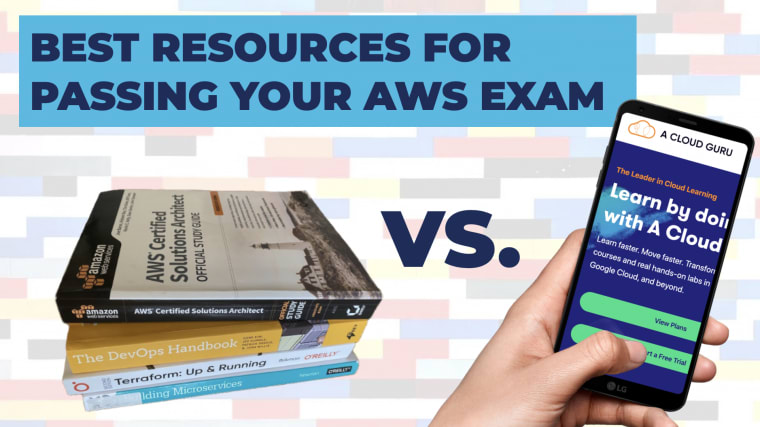
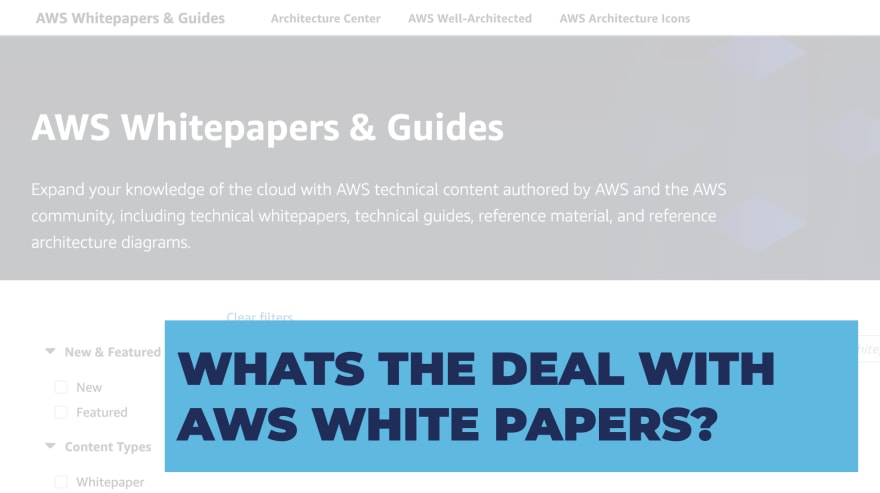





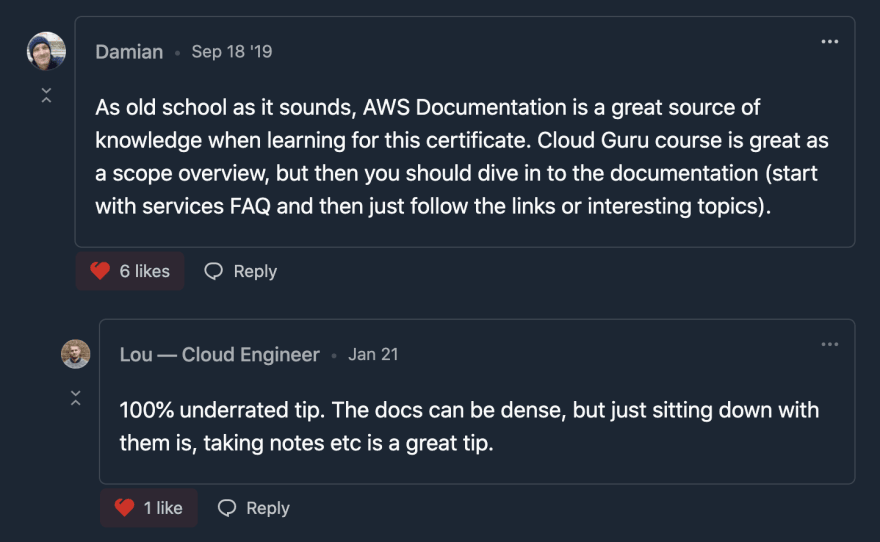
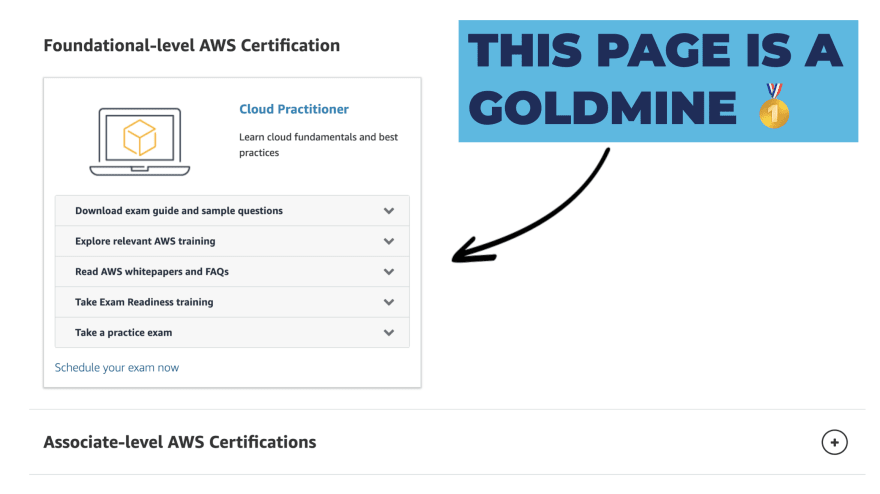
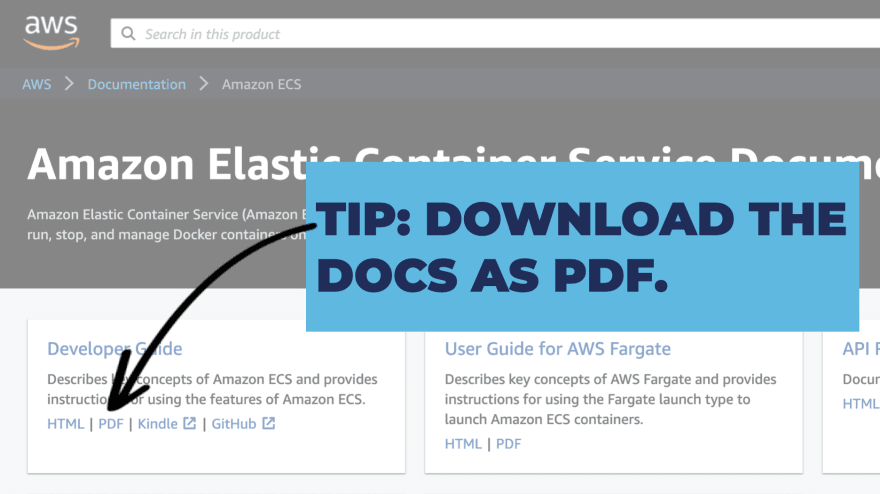
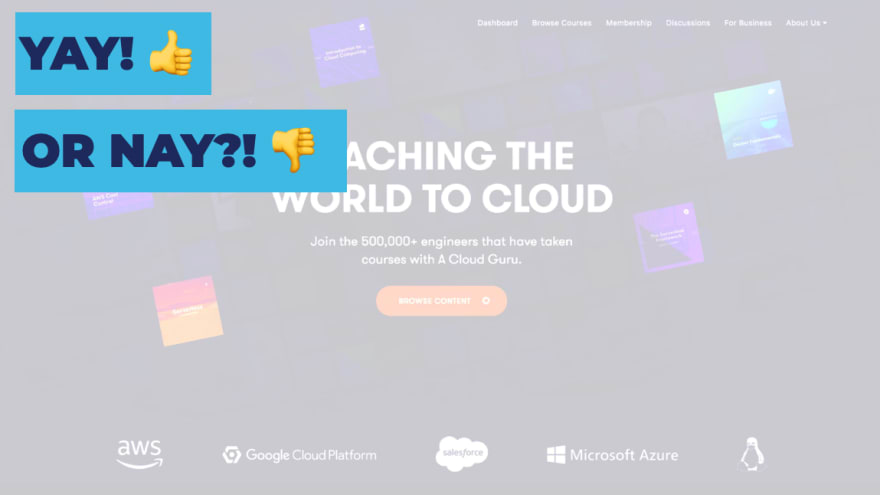



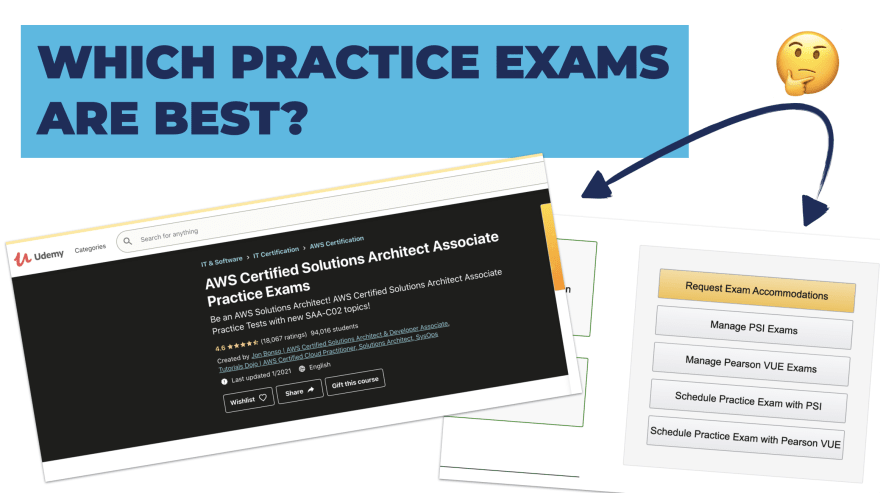
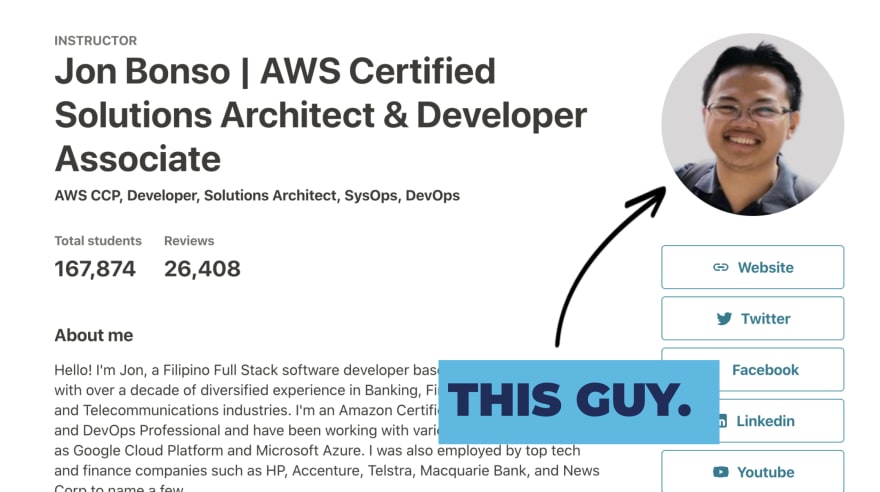
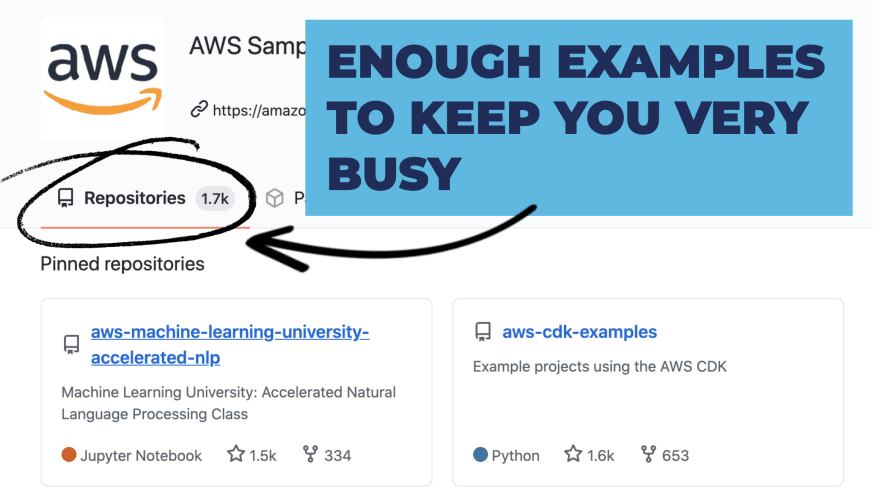
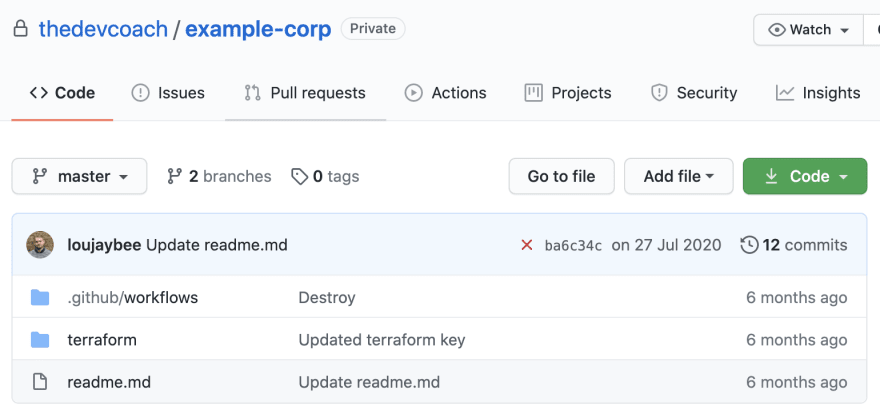


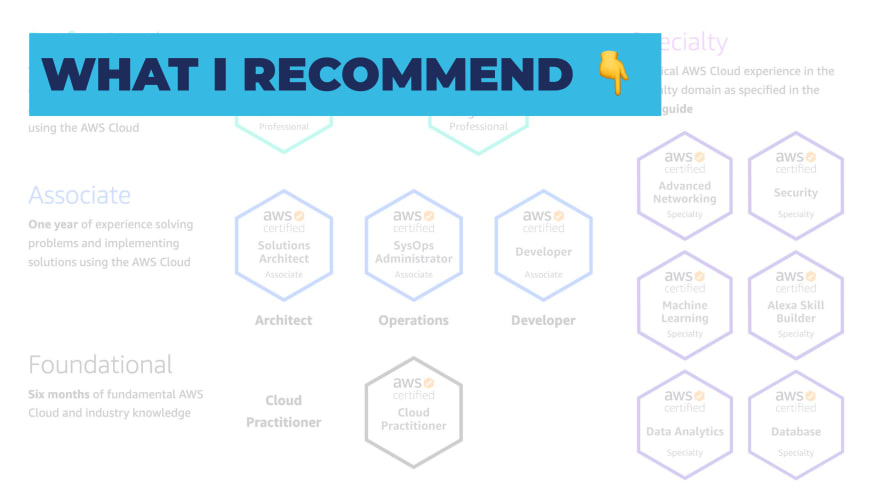





Oldest comments (4)
Thank you so much for sharing this post. It's great content and mustbe bookmarked for reference.
Thank you, glad it was useful for you!
Great stuff, thanks for sharing 👏
Thanks Rafael 🙏